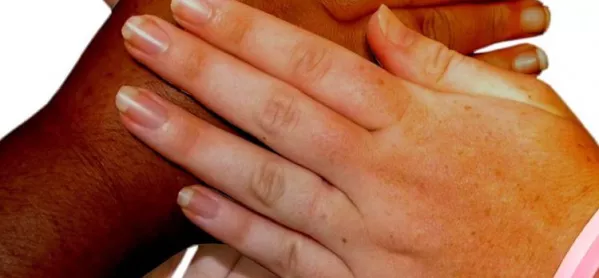Want to keep up with the latest education news and opinion? Follow TES USA on Twitter and like TES USA on Facebook.
Ellie looked confused so I tried another way of explaining it.
“So collagen is a structural protein,” I said. “And it is found in crescent shapes all along the length of your windpipe like this.”
I made a c shape with my thumb and forefinger.
“And that is why your trachea has a rigid structure and doesn’t collapse.”
A wave of realisation washed over her face and I could see she understood.
It was a relief. I tutor in a hospital school. My students are cancer patients. These young people are so motivated, so eager to learn, so brave in overcoming the obstacles they face, that I want to be the best tutor I can be.
I am not told the cancer type the young people have or the treatment they are undergoing and, in any case, I would never allow their illness to define them in any way. Yet, sometimes, they feel comfortable enough to reveal little details to me about their illness, which is really humbling.
“Ah! I just realised!” Ellie turned and looked straight at me. “My doctors thought that my tumour was made of collagen… back when we didn’t know what it was.”
‘Education gives a sense of normalcy’
Despite all the challenges that having cancer throws at young people, it never stops students wanting to make strides forward in their education.
For me, it is so important that everything possible is done to minimise disruption to their schooling and that is why I volunteer tutor at the University College Hospital and Macmillan Cancer Centre.
Most tutoring sessions last around thirty to forty-five minutes because the young person’s treatment is exhausting. In fact, every week of my volunteering is quite unpredictable as it entirely depends on who feels well enough and who would like tutoring on the day I go in.
But, meeting and working with the young people is the most rewarding experience. Education gives a sense of normalcy, continuity and hope for the future when young patients’ lives are upturned.
If any of your students experience long-term illness, the one piece of advice I would give is to keep in regular contact with them. They will really appreciate your efforts and any resources and classwork offered is often very useful.
When they return to school, let them decide how much they want to reveal about their absence.
In my experience, every young person has a different way of dealing with their illness, but one thing is certain: they are all inspirational.
Laura McDonnell is a university student in London and a volunteer tutor at University College Hospital and Macmillan Cancer Centre.


